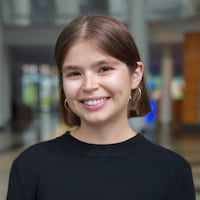Savannah might be home to the late Johnny Mercer and the inspiration for “Moon River,” the theme of “Breakfast at Tiffany’s.”
But compared to Atlanta, which has trap and hip-hop, Athens’ REM and the B-52s, or Macon’s Otis Redding and the Allman Brothers, Georgia’s first city isn’t as well known for its musical heritage.
The new Savannah Music Commission, an entity focused on the needs of the city’s music community that was crafted by recent legislation, is trying to give the region’s music scene a boost.
“We’re trying to create a support platform for artists to have resources, to collaborate, and keep having that conversation of: ‘What do you need? What can we do to help?’” longtime Savannah area artist management professional Mary Dugas said.
Nine local industry leaders have been appointed by state representatives to serve on the commission, including Monty Jones, the general manager and booker for the 9,500-seat Enmarket Arena, Dinah Gretsch, an executive with instrument manufacturer Gretsch, and Dugas.
Savannah isn’t without a music scene — there are several spaces to play, hear and record live music, including its long-running Savannah Music Festival. A number of artists have called the city home, from Mercer to rapper Quando Rondo. But Savannah has rarely, if ever, been on the mind of talent bookers, especially for midsize touring acts, said Brian Goldman, a longtime entertainment professional who now books acts for Savannah venue Victory North. Artists who experience a modicum of success in Savannah usually uproot to other cities.
Part of this has to do with a dearth of venues and other resources relative to other major Georgia cities. Another part is a general lack of awareness among visitors that Savannah has a live music scene, Goldman said.
Tourists want to do four things when they arrive, he said: see the river, historic homes, ghosts, and then enjoy the Historic District’s open container policy.
“We have to get into the mind of people that there is great music to see,” Goldman said, who does not serve on the commission. “I’m competing against those things. I don’t expect to ever get into those top four, but if we can get into the five, that would be great.”
In September of last year, Dugas founded the Savannah Music Collective, an organization that provides a comprehensive calendar of live music events to the community, as well as information about local artists, music organizations and recording studios. It also supports professional development opportunities for musicians and other music industry personnel.
Regional cultural commissions are engines of support and branding for local arts and entertainment industries. Their purpose is not to turn every city into the next Nashville or Los Angeles, but rather provide resources to local artists, boost tourism and serve as an information clearinghouse, whether it’s facilitating artists’ grants, sponsoring workforce training programming or commissioning public works of art.
An effort to create a statewide music office did not pan out this past legislative session. But lawmakers approved the Savannah commission, and advocates say a small step can help drum up interest in a larger statewide commission.
Discussions over both the Savannah-based commission and the failed effort to create a statewide music entity pointed toward the Georgia Film Office as an example of what such an organization can do for an industry. The state film office is the steward of the generous tax credit that enabled production to boom over the past decade and provides other resources to projects filming in the state, such as connecting filmmakers to production facilities or establishing liaisons in each county.
There are a number of other gaps in Savannah’s music industry the commission can address. For one, there aren’t enough smaller spaces and listening rooms for artists to hone their craft and bands to develop their sound, Dugas said, nor are there enough higher-paying gigs and other opportunities for them to earn revenue.
Smaller frustrations exist, too, like bands receiving parking violations as they’re loading heavy equipment outside of venues with their hazard lights on or navigating a convoluted process to obtain a street performer license in heavily touristed areas.
The commission will hold its first formal meeting in late August, where it will lay out its road map for the rest of the year. It will also discuss establishing an operating budget. As of now, the members of the commission are volunteers and unpaid.
“The other part of it is trying to build and strengthen the community of musicians here,” Goldman said. “Too many people operate in their own lane. If everyone worked together, the city would be better off for it.”
About the Author
Keep Reading
The Latest
Featured


